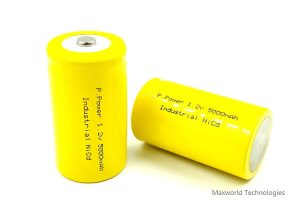Explaining Lithium Iron Battery Reserve Capacity

It can be difficult to choose which battery to buy for your energy system. Several specifications need to be compared, including amp hours, voltage, cycle life, and efficiency. Understanding the battery reserve capacity specification is crucial since it has a significant impact on the battery’s longevity and how well it will function under prolonged loads. Battery reserve capacity, in general, tells you how long a fully charged battery can operate before dropping below a certain voltage. This information is crucial if you need a battery for continuous loads over time rather than brief bursts. Before purchasing your next battery, take a look at the important facts concerning reserve capacity we’ve provided below.
What is the capacity of a battery reserve?
The amount of time a 12V battery can run before dropping to 10.5V is known as reserve capacity (RC), also known as the maximum operating voltage. It is measured using reserve minutes. For instance, a battery with a 150-minute reserve capacity may support 25 amps of electricity for 150 minutes before the voltage decreases to 10.5V.
In contrast to amp-hours (Ah), which measure the number of amps, or current, that may be generated in a single hour, reserve capacity only measures time. Since they are linked but not the same, reserve capacity can be calculated from amp-hours and vice versa. RC capacity, as opposed to amp-hours, is a considerably more accurate way to estimate how long a battery will endure under steady loads.
Why is it vital to have enough battery reserve?
To determine how long your batteries can run under constant loads, reserve capacity is used. If you plan to drain your batteries for a longer amount of time, it is crucial to understand because it is a wonderful indicator of battery performance. Therefore, you can better predict the times you can use your batteries and the power you can utilize if you well know your reserve capacity. That makes a significant difference in how you utilize your batteries and how many you may require, depending on whether your reserve capacity is 150 minutes or 240 minutes.
For example
For example, if you plan to spend a whole day fishing, you need to know how much power and time your battery will provide so that you may plan your travel efficiently and arrive home without running out of juice.
Your battery’s reserve capacity has a direct bearing on the amount of power it can provide. As power is equal to amps times volts, the power decreases if your battery voltage lowers from 12V to 10.5V. Also, because energy equals power times the time spent in the power decreases, so does the energy produced. Therefore, you will have a varied reserve capacity requirement depending on how you plan to use your battery, for example, for days-long RV travels in the winter or an infrequently used golf cart in the summer.
How do lithium and lead acid batteries' reserve capacities differ?
Secondly, although having reserve capacity, lithium batteries are typically rated or referred to in terms of amp-hours or watt-hours, which are more widely used. However, compared to lithium batteries, lead-acid batteries typically have a lesser reserve capacity. High-quality lithium batteries are not affected by the Peukert Effect, and the amp-hour rating of these batteries represents the maximum charge that can be delivered under most circumstances.
In particular
In particular, a 12V 100Ah lead-acid battery’s typical reserve capacity ranges from 170-190 minutes to 240 minutes for a 12V 100Ah lithium battery. When replacing lead acid batteries with lithium ones, you can save weight and space because lithium batteries have a higher reserve capacity at the same Ah rating. Our, Maxworld Power 12V100AH lithium battery offers greater capacity and longer-lasting power at a quarter of the weight, with a reserve capacity of 240 minutes at 25 amps. Therefore, a 12V 100Ah lead acid battery weighs 63 pounds, while a 12V100AH lithium battery weighs only 30 pounds.

Conclusion
You can visit our Lithium Battery website(Maxworld Power) to find out more about determining your energy requirements and selecting the best battery for your needs. Our specialists are available to guide you through the process if you need more help choosing the best battery for your unique use case, from boating to your upcoming RV vacation.






